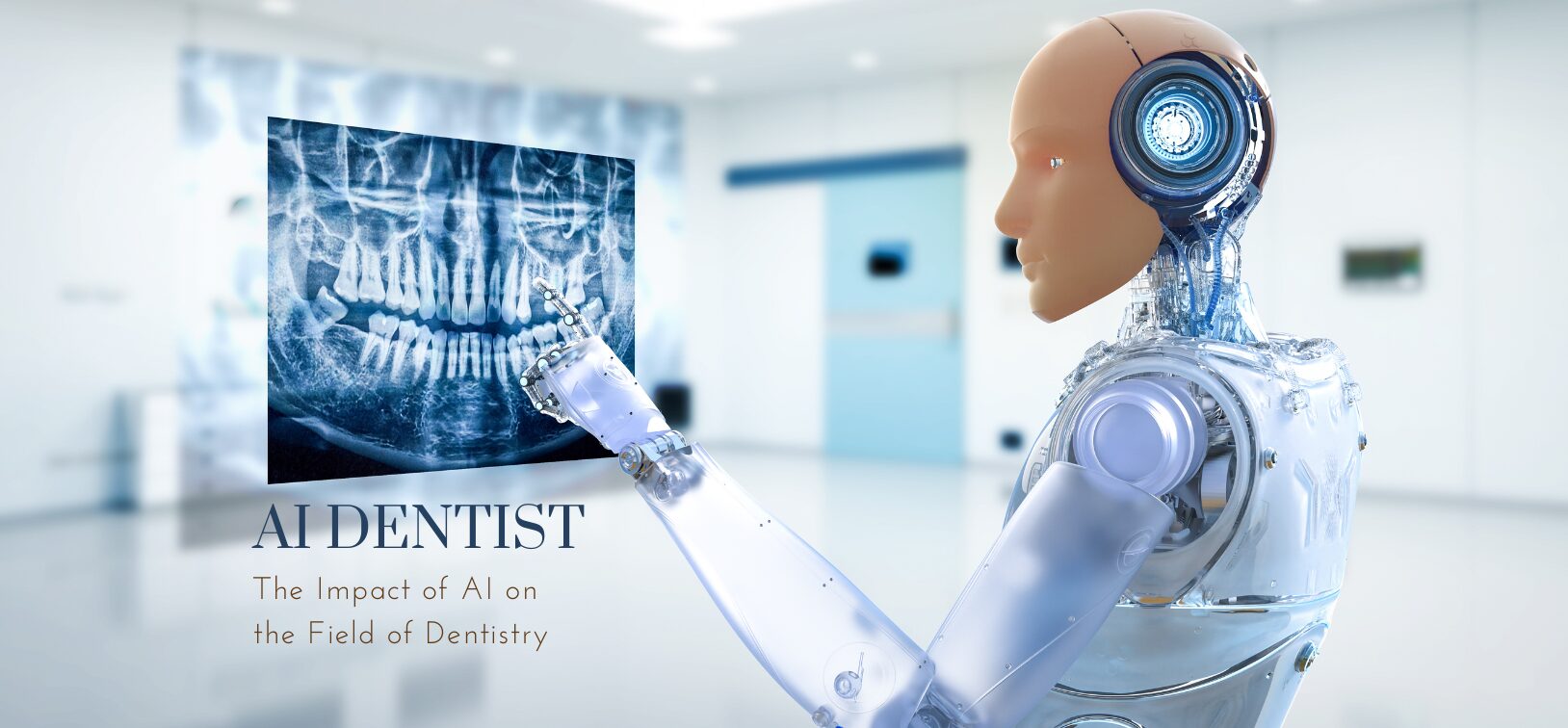Artificial Intelligence (AI) is revolutionising the field of dentistry, transforming everything from diagnostics to patient care, treatment planning, and practice management. As technology continues to evolve, AI-driven tools are making dental procedures more efficient, accurate, and accessible. In this article, we explore the key ways AI is shaping modern dentistry and what this means for both practitioners and patients.
1. AI in Dental Diagnostics
One of the most significant impacts of AI in dentistry is its ability to enhance diagnostics. AI-powered imaging tools can analyse dental X-rays, CBCT scans, and intraoral images with remarkable precision, detecting issues such as cavities, gum disease, and even early signs of oral cancer.
- Automated Image Analysis: AI algorithms can identify abnormalities in radiographs with greater speed and consistency than human eyes, reducing diagnostic errors.
- Early Detection of Diseases: AI-driven tools can spot minute changes in dental structures that may indicate conditions like caries or periodontal disease before they become severe.
- Predictive Analytics: Machine learning models can assess risk factors for conditions such as tooth decay and gum disease, allowing for early intervention.
2. AI in Treatment Planning and Personalisation
AI is also transforming the way dental treatments are planned and executed. With advanced data analysis and 3D imaging capabilities, AI systems can assist dentists in creating highly customised treatment plans.
- Orthodontic Treatment Optimisation: AI-powered software in orthodontics, such as Invisalign’s ClinCheck, can simulate tooth movements and generate optimal aligner sequences.
- Dental Implant Placement and Surgery Planning: AI-based software can assist in precise implant positioning by analysing bone density and anatomy, ensuring optimal placement.
- Virtual Smile Design: AI algorithms can generate digital simulations of post-treatment outcomes, helping patients visualise their results before committing to procedures like veneers or cosmetic bonding.
3. AI in Robotic-Assisted Dentistry
The integration of AI with robotics is paving the way for more precise and minimally invasive dental procedures. Robotics, guided by AI algorithms, can enhance the accuracy of treatments and reduce human error.
- Robot-Assisted Surgeries: Systems like Yomi, the first FDA-approved robotic dental assistant, provide real-time guidance during implant placement, improving precision and reducing complications.
- Automated Prosthetic Fabrication: AI-driven CAD/CAM (Computer-Aided Design and Manufacturing) technology streamlines the design and production of dental restorations, such as crowns and bridges, improving fit and efficiency.
4. AI in Patient Management and Tele-Dentistry
AI is also reshaping how dental practices manage patient care, streamlining administrative processes, and enhancing the patient experience.
- Chatbots and Virtual Assistants: AI-powered chatbots can answer patient inquiries, book appointments, and provide post-treatment care instructions, reducing the burden on reception staff.
- Tele-Dentistry and Remote Consultations: AI-driven diagnostic tools allow dentists to assess patient images remotely, making dental care more accessible, especially in rural or underserved areas.
- AI-Powered Scheduling and Reminders: Smart scheduling systems optimise appointment bookings and send automated reminders to reduce no-shows and improve efficiency.
5. AI in Dental Research and Education
AI is playing a crucial role in advancing dental research and education, providing new insights into treatment effectiveness and improving training for future professionals.
- AI in Dental Research: Machine learning algorithms can analyse vast amounts of clinical data to identify trends and improve treatment protocols.
- AI-Assisted Training and Simulations: AI-powered simulators help dental students practice procedures in a virtual environment before working on real patients, enhancing skill development.
Challenges and Ethical Considerations
While AI offers immense potential, its integration into dentistry comes with challenges:
- Cost of Implementation: Advanced AI tools require significant investment, which may be a barrier for smaller practices.
- Data Privacy and Security: With AI handling vast amounts of patient data, ensuring compliance with regulations like GDPR and HIPAA is essential.
- The Role of Human Expertise: AI should complement, not replace, the expertise of dental professionals. Human judgement remains crucial in treatment decisions.
Conclusion: The Future of AI in Dentistry
AI is undoubtedly reshaping the landscape of dentistry, making procedures more precise, diagnostics more reliable, and patient management more efficient. As AI technology continues to evolve, its role in dentistry will only expand, offering new opportunities for improved patient care and practice efficiency. However, ethical considerations, cost management, and professional oversight will be key to ensuring that AI serves as an enhancement rather than a replacement for human expertise.
For dentists and patients alike, embracing AI means stepping into a future of smarter, faster, and more personalised dental care.

































